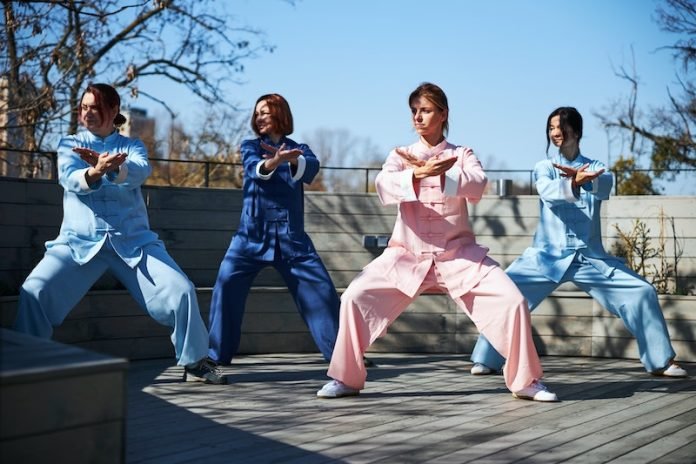
Dementia is a progressive neurological disorder that affects memory, thinking, and behavior. It is a major cause of disability and dependence among older adults worldwide.
While there is no cure for dementia, research has shown that regular physical exercise can help reduce the risk of developing this debilitating condition.
In this article, we will discuss some of the best exercises for preventing dementia.
- Aerobic Exercise
Aerobic exercise, also known as cardiovascular exercise, is any type of physical activity that increases the heart rate and breathing.
Examples include brisk walking, jogging, cycling, and swimming. Aerobic exercise has been shown to improve brain function by increasing blood flow and oxygen to the brain.
Studies have also found that regular aerobic exercise can improve memory and cognitive function in older adults.
A study published in the journal Neurology found that older adults who engaged in regular aerobic exercise had larger brain volumes and better cognitive function compared to those who did not engage in regular exercise.
Another study published in the Journal of Alzheimer’s Disease found that aerobic exercise improved cognitive function and reduced brain atrophy in older adults with mild cognitive impairment, a condition that can lead to dementia.
- Strength Training
Strength training, also known as resistance training, involves using weights or resistance bands to build muscle strength and endurance.
While it may seem counterintuitive, strength training has been shown to improve brain function and reduce the risk of dementia.
A study published in the Journal of the American Geriatrics Society found that older adults who participated in a strength training program twice a week for six months had improved cognitive function compared to those who did not participate in the program.
The study found that strength training improved working memory, attention, and processing speed, which are all important cognitive functions that can decline with age.
Another study published in the Journal of Aging and Physical Activity found that older adults who engaged in a strength training program for one year had improved cognitive function compared to those who did not participate in the program.
- Yoga
Yoga is a mind-body practice that combines physical postures, breathing exercises, and meditation. It has been shown to improve brain function and reduce the risk of dementia.
A study published in the Journal of Alzheimer’s Disease found that older adults who practiced yoga for six months had improved memory and cognitive function compared to those who did not practice yoga.
The study found that yoga improved verbal memory, visual-spatial memory, and attention, which are all important cognitive functions that can decline with age.
Another study published in the Journal of Alternative and Complementary Medicine found that yoga improved cognitive function and reduced symptoms of depression and anxiety in older adults.
- Tai Chi
Tai chi is a Chinese martial art that involves slow, flowing movements and deep breathing. It has been shown to improve balance, flexibility, and cognitive function in older adults.
A study published in the Journal of Alzheimer’s Disease found that older adults who practiced tai chi for six months had improved memory and cognitive function compared to those who did not practice tai chi.
The study found that tai chi improved verbal memory, visual-spatial memory, and attention, which are all important cognitive functions that can decline with age.
Another study published in the Journal of Gerontology: Medical Sciences found that tai chi improved balance and reduced falls in older adults.
- Dancing
Dancing is a fun and social way to get physical exercise. It has been shown to improve brain function and reduce the risk of dementia.
A study published in the New England Journal of Medicine found that dancing was the only physical activity associated with a reduced risk of dementia.
The study followed over 400 older adults for 21 years and found that those who danced regularly had a 76% reduced risk of developing dementia compared to those who did not dance.
The study found that dancing improved cognitive function and reduced the risk of dementia more than other physical activities
Incorporating Exercise into Daily Life
While regular exercise is important for preventing dementia, it can be challenging to start and maintain a regular exercise routine. Here are some tips for incorporating exercise into daily life:
Set realistic goals: Start with small goals and gradually increase the duration and intensity of your exercise routine.
Make it fun: Choose activities that you enjoy and that can be done with friends or family members.
Find a routine: Schedule a regular time each day for exercise, such as in the morning or after work.
Be consistent: Aim to exercise at least three to five times a week for at least 30 minutes each time.
Mix it up: Vary your exercise routine to include a combination of aerobic exercise, strength training, yoga, tai chi, and dancing.
If you care about dementia, please read studies about new hidden cause of dementia, and these drugs linked to post-COVID dementia in older people.
For more information about brain health, please see recent studies about antioxidants that could help reduce dementia risk, and higher magnesium intake could help benefit brain health.
Copyright © 2023 Knowridge Science Report. All rights reserved.



